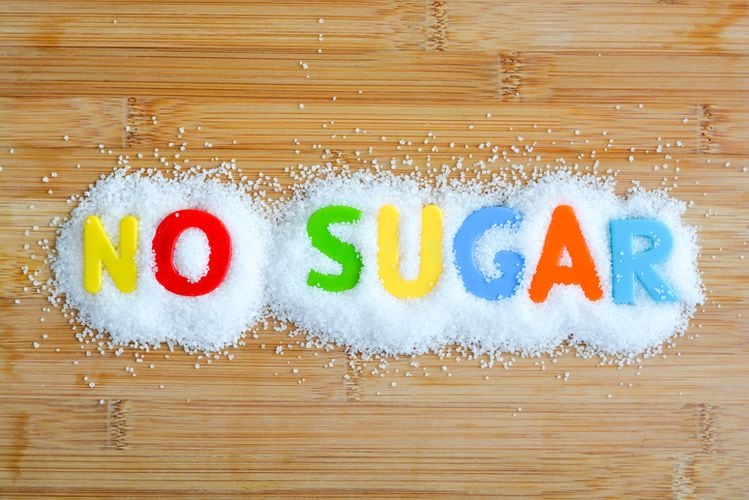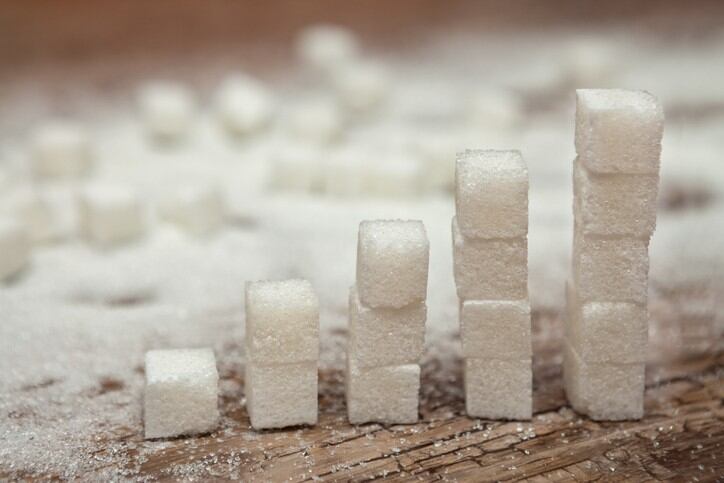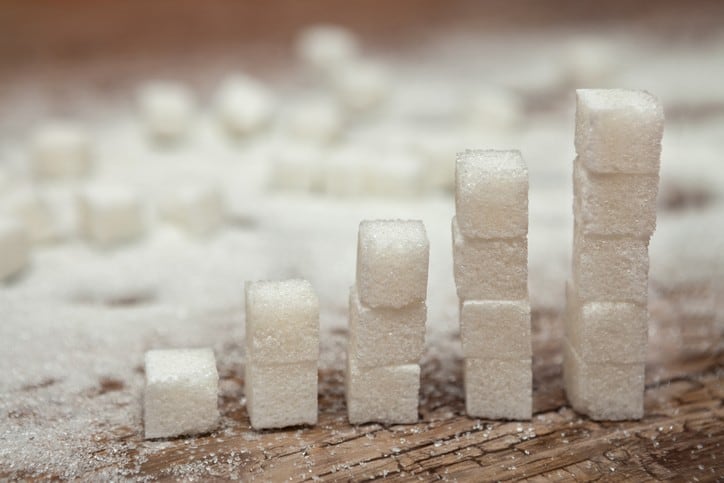The company – which manufactures allulose at a plant in Loudon, Tennessee – has seen dramatic growth in its allulose business, and started allocating product early last year as demand started to exceed supply.
The first phase of the expansion, which is now complete, has increased allulose syrup production at Loudon, while the second phase (due for completion in the second half of 2023), will boost crystalline production, global head of sweeteners Abigail Storms told FoodNavigator-USA.
She would not share figures, but said it amounted to a “very significant increase” in capacity.
70% of sweetness of sugar, but only 0.4 calories per gram
Tooth-friendly rare sugar allulose has 70% of the sweetness of regular sugar but only 0.4 calories per gram (vs 4cals/g for sucrose), and has a negligible effect on blood sugar and insulin, generating strong interest from formulators seeking to replicate the sensory and functional properties of sugar, without the calories, said Storms.
“It’s incredibly close to sucrose, there are some minor differences, but the temporal profile is almost identical, so it’s exponential, how it’s taken off. Not so long ago, there were something like 20 launches globally, and now you’re got over 400.”
Allulose application trends
As it has the texture and bulk of regular sugar, allulose can be used to reduce or replace sucrose in everything from beverages, yogurt and ice cream to baked products and candies, said Storms, who said price and availability were really the only things holding it back, as the firm has yet to find an application in which it doesn’t perform well.
As for demand, she said, “I would say top of the list are bars of all types, then ice cream, where you get that great mouthfeel, frozen yogurt and yogurt… then it’s bakery, biscuits and cookies, and then we've seen some really good launches this year with cold cereals, which is driven a lot by the keto trend but also people are really looking at labels in cereal for sugar.
"Then you've got nutrition and meal replacement drinks, then tabletop sweeteners, and then dairy alternative drinks and things like baking ingredients and mixes, barbecue sauces and things like that.”
She added: “Allulose is really a great enabler for other ingredients as well, so you're seeing it used in combination with stevia and monk fruit, because it's working in synergy with them.”
Allulose and keto formulations
While grams of allulose must still be listed as grams of carbohydrate on the Nutrition Facts panel in the US, even though it no longer has to be listed as grams of sugar, it’s still gaining traction in keto applications (high-fat, moderate protein, and ultra-low-carb) as keto fans understand that it doesn’t behave like sugar, and has a negligible effect on blood sugar and insulin, she said.
“We often recommend to customers that they provide a short explanation for consumers of what the carbs are, but consumers that are most involved know what they are looking for, and for them there is already a very high awareness of allulose.”
As for market regions, while allulose is not yet approved in the EU, it is approved in the US and Mexico, two key markets Tate & Lyle is targeting, and is also picking up steam in some Latin American and Asian markets, she added.

While allulose is found naturally in a variety of plants, it is produced on a commercial scale via a complex, multi-step enzymatic process typically starting with corn starch, by a handful of firms including Tate & Lyle (via a plant in Tennessee); Ingredion/Matsutani (via a plant in Mexico); Korean firms CJ CheilJedang and Samyang Corp; and Chinese firms including Shandong Bailong Chuangyuan Bio-Tech Co., Ltd and Shandong Baolingbao Biotechnology Co., ltd.
Virginia-based startup Bonumose is working on alternative manufacturing processes it claims can eliminate some processing steps and significantly increase yields, but has not yet brought a product to market.
The innovation pipeline: ‘Customers are always asking what's next?’
So what about the sweeteners innovation pipeline? With so many ingredients now being produced via fermentation – with microbes now producing everything from steviol glycosides and dairy proteins to collagen – is Tate & Lyle exploring new sweeteners that are found in nature, but could be produced more efficiently by microbes?
According to Storms. “We're looking at everything in the sweeteners space and screening a lot of different options as our customers are always asking what's next?”
Aside from whether it’s commercially viable to produce a given sweetener, she said, “We are making decisions based on consumer acceptance of new ingredients on the label and we continue to look for ingredients that fit our portfolio, fit consumer needs in terms of more natural, great tasting, but we’re also thinking about how we could do things in a sustainable way.”
Commodity prices and corn-based sweeteners
Tate & Lyle recently sold a controlling stake in its 'Primary Products' industrial sweeteners and starches business in the Americas to private equity firm KPS Capital Partners, as it focuses on specialty sweeteners (such as Dolcia Prima allulose, stevia, sucralose, and monk fruit), fibers (such as prebiotic corn fiber PROMITOR and STA-LITE polydextrose), texturants (starches), and other high-value food & beverage ingredients.
In a statement announcing the completion of the sale on April 1, the company also noted that the conflict in Ukraine is “causing a significant escalation in raw material (including corn), energy and logistics costs globally, especially in Europe.”
It added: “We have committed agreements in place for key production inputs such as corn and energy covering the majority of the first half of the 2022 calendar year. Input markets remain volatile and we will continue to take actions to mitigate additional inflationary pressures, including supplementary price increases across our main markets.”
According to a recent report from Rabobank ('The Grain Drain After Ukraine,' March 2022), Ukraine and Russia together account for over 16% of global corn exports, with analysts noting that it is "impossible to assess how much of this volume will be lost."
Whatever happens, a reduction in global corn supplies means we can expect to see an increase in US corn exports "in at least the current crop year, potentially trimming ending stocks for another year,” which will have a knock-on effect on prices, they added.
Storms explained: “The Ukraine conflict has less impact in terms of the price of corn in the US, because obviously, our corn source is US, from around the Loudoun production site, but obviously, corn pricing in general has been increasing as well as general costs across the board in terms of fuel increases and everything else.”

Found naturally in plants such as figs and raisins, allulose is produced on a commercial scale via a complex, multi-step process typically starting with corn starch, and is in high demand because it has 70% of the sweetness of sucrose but only 0.4 calories per gram (compared with 4 calories per gram for sucrose).
While allulose still counts as ‘carbs’ on food labels, it is metabolized differently than table sugar, and doesn’t raise blood glucose or insulin, making it a potentially attractive sweetener for consumers watching their blood sugar.
Speaking to us in September 2021, Nate Yates, VP Global Sugar Reduction Platform at Ingredion, said allulose was one of the most exciting ingredients he has worked with in a while: "Allulose is very exciting. You just don’t have many products that come along that are very low calorie with the functionality that allulose has, the sweetness, the bulking.”
Picture credits: Chobani, Nick's Ice Cream, Kashi, Smart Sweets, Magic Spoon are all brands utilizing allulose in selected products.




